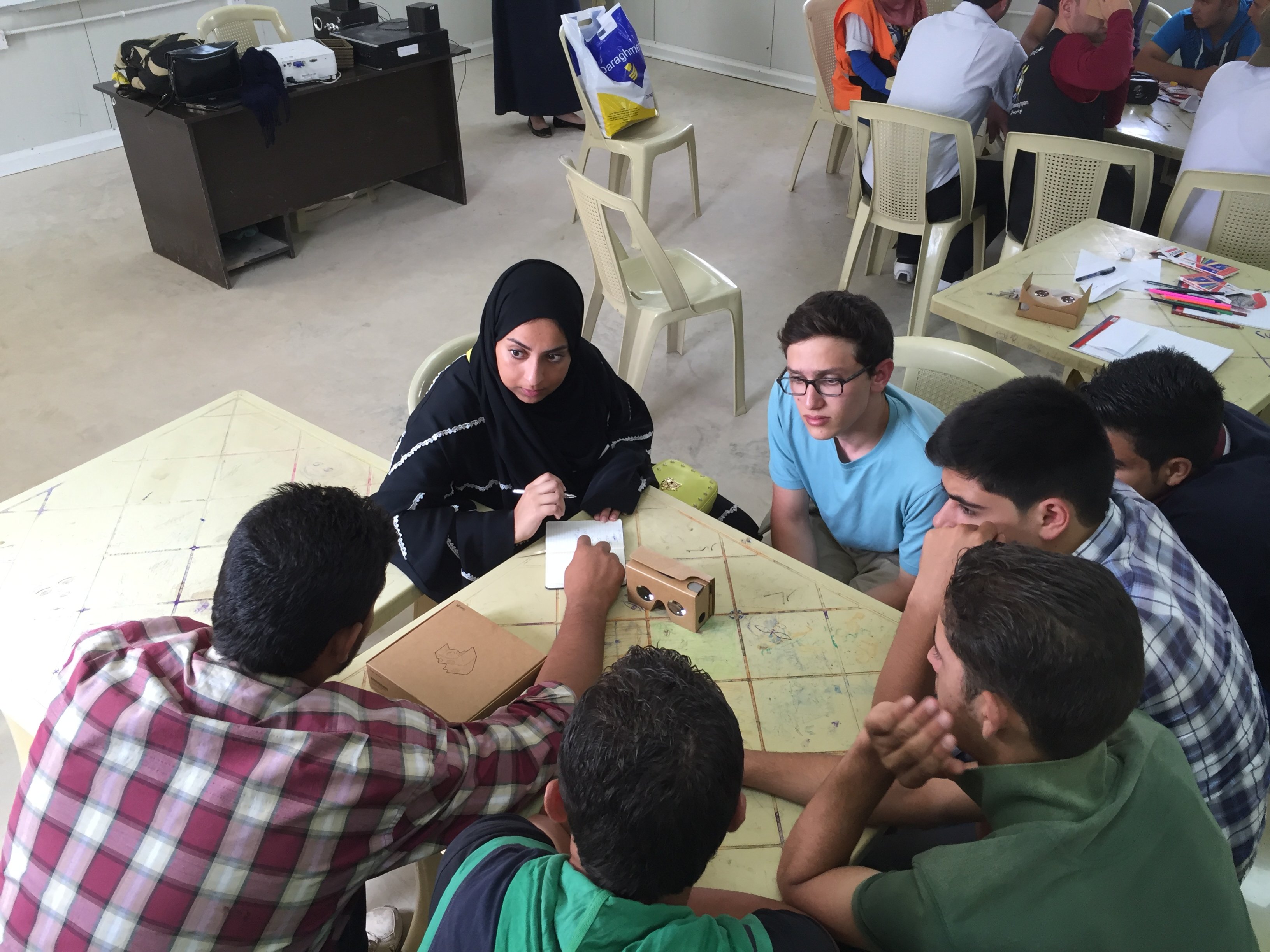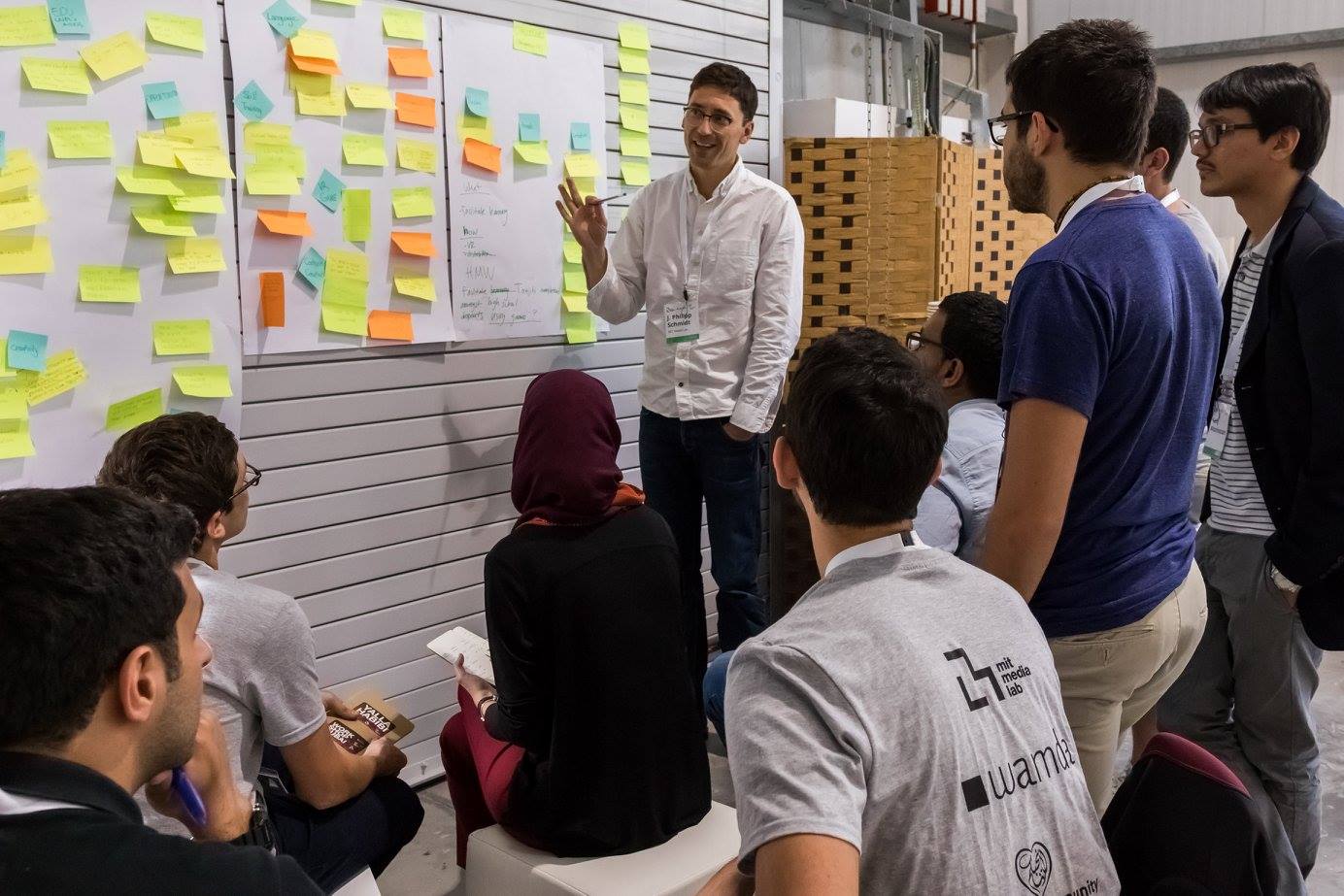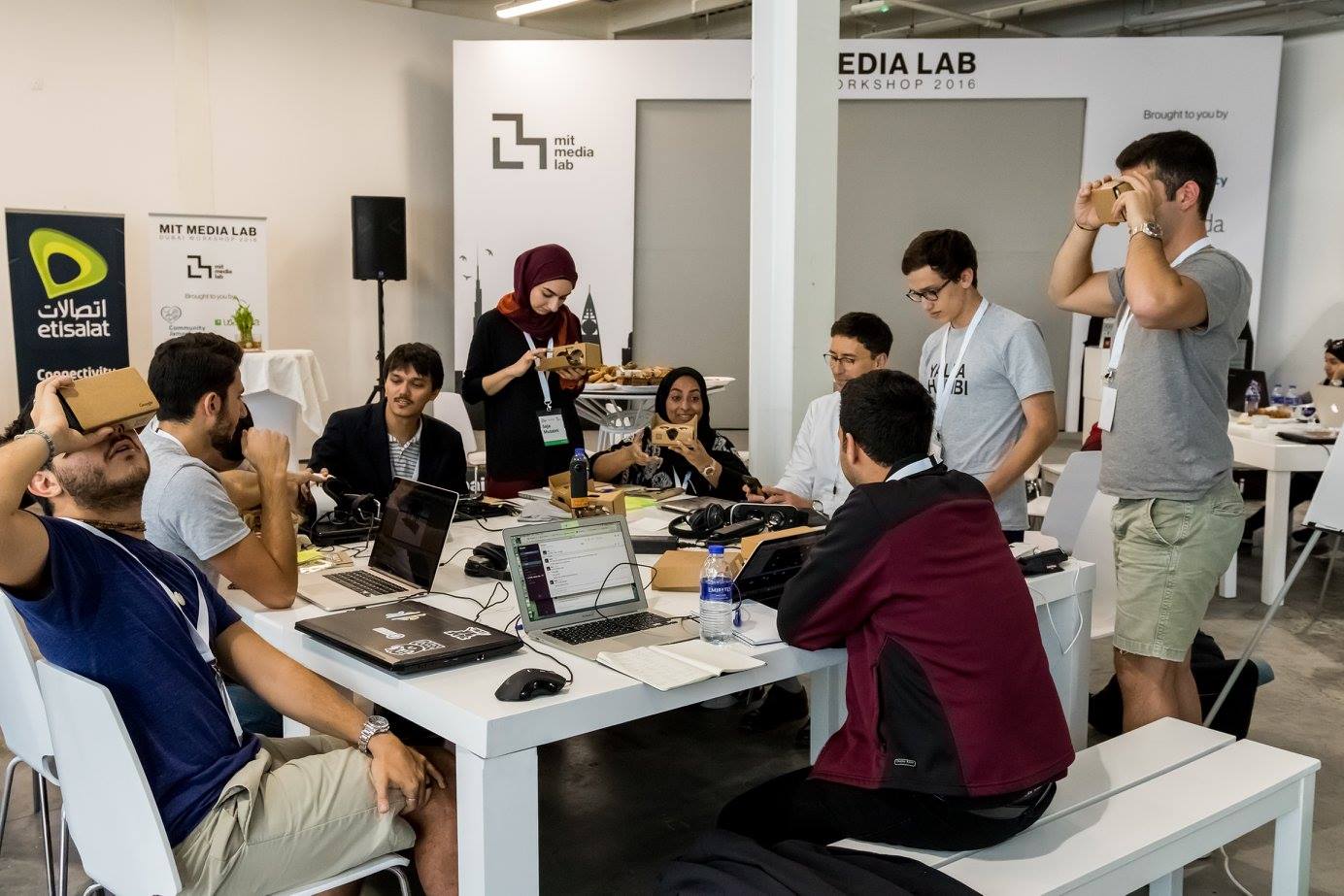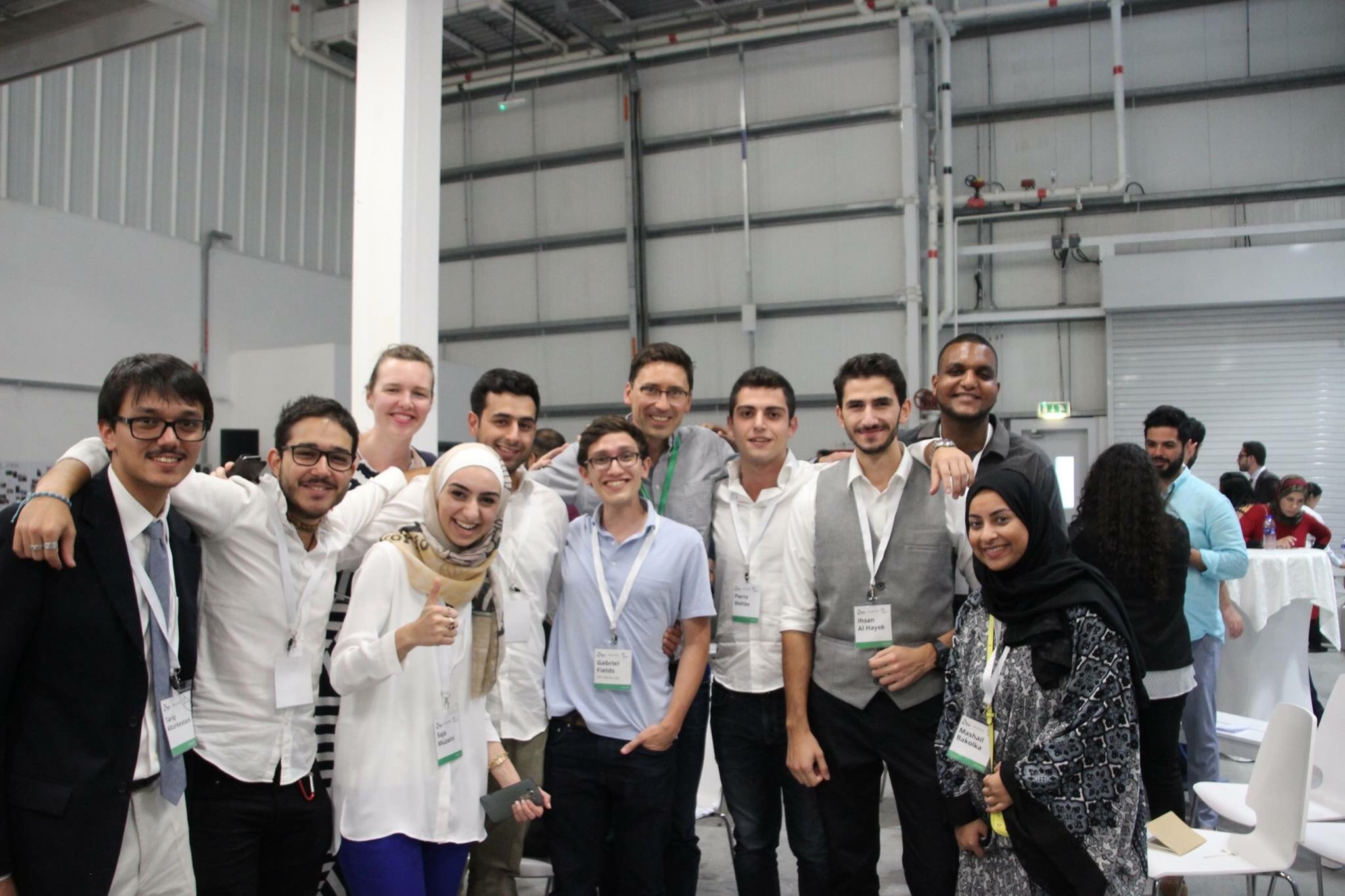Sphyria (Sفيria)
Last Updated November 8th 2016
In September 2016, I was invited to attend the MIT Media Lab Dubai workshop in Dubai as one of the 30 engineers, scientists, designers, and artists selected worldwide to discuss and develop innovative urban solutions. We were divided into 4 teams.
My team had “Learning for underserved communities” as a theme, and Virtual Reality as a tool we would want to exploit.
This was effectively the first time I got introduced to the entrepreneurial world and the Virtual Reality technology which really inspired me to co-found with my friends back in Lebanon Sfearia.
Jordan | Zaatari Camp
The team flew to Jordan to visit the refugee camp and get more in-person insights on how refugees live, what are the problems they face every day, what assets they have access to, what they think they need, demographics, and how they reacted to using virtual reality.
Most refugees interestingly had smartphones. They justified such an investment as being the only efficient medium of contact with family and friends they were separated from abruptly. This was convenient giving that we were using the Google Cardboard Headsets that are a cheaper alternative to the fancier tethered headesets.
 Discussion with Syrian refugees at the Zaatari Camp | Jordan
Discussion with Syrian refugees at the Zaatari Camp | Jordan
The Problem
With the help of IDEO, we brainstormed extensively on what specific pain we were going to tackle. We ended up narrowing down all our ideas to 2 mains ones:
- Technical help, supporting refugees to fix some of their readily present but damaged assets
- Emotionally, by helping them get over an identity crisis
 Brainstorming Session | Dubai
Brainstorming Session | Dubai
We debated a lot on the above two and split up to build a proof of concept that would help determine what solution would have more impact. It wasn’t until Ihsan, a member of the team originally from Syria that has immigrated to Dubai 7 years ago, was immersed in an old street of Syria were he was able to spot far down the road a building that is familiar to him, his home that we knew we were going to go with option 2.
Solution
As a team, we focused all of our efforts on defining and building a prototype to put all we have come up with during the past few days in a minimum viable product.
 Prototyping | Dubai
Prototyping | Dubai
Experience
The users would get immersed in a virtual reality world, above Syria. The user would then be able to fly around and visit different places in Syria before the war. In every place, refugees can listen to the memories that were immortalized in this place and share their hopes for the future. (Check the video below for a 1min demo). We also restricted memories to good and cheerful memories.
Why “Sphyria (Sفيria)”
“Phy” is the english transciption of the arabic “في” which means “inside/ within”. Resulting in “within Syria”. Phonetically, Sphyria sounds similar to “Spheres”, which is how we chose to encapsulate individual environments/ places in Syria before the war. (Watch the video below if you haven’t yet!)
Prototype

Team
 Sphyria Team | Dubai, (Below team members from left to right)
Sphyria Team | Dubai, (Below team members from left to right)
- Tariq Alturkestani is a Computer Sciense PhD student in Saudi Arabia.
- Batu Aytemiz is a Computational Media PhD Student at UC Santa Cruz. He studied in NYU Abu Dhabi Computer Science and Game Design. He is originally from Turkey.
- Genevieve Barrons is a Program Specialist for the Higher Education Support Program at the Open Society Foundations. She oversees their work on access to higher education for Syrian refugees. She is based in London.
- Saja Muzaini is an arabic senior Graphic Designer currently based in London originally from Saudi Arabia.
- Noor Eddin Amer is a graduate student and research assistant with the Learning Initiative at the MIT Media Lab. He has an undergraduate computer science and engineering degree with a minor in political science from MIT.
- Gabriel Fields is an undergraduate studying Computer Science and Mechanical Engineering at MIT.
- J. Philipp Schmidt is the Director of Learning Innovation at the Media Lab, where he teaches, conducts research, and develops technologies for learning communities.
- Myself 😁
- Ihsan Al Hayek is an undergraduate Industrial Engineer student. He is originally from Syria.
- Elias Jabbe is a Journalist based in Los Angeles.
- Mashail Bakolka is an Electrical & Computer Engineering Student in Saudi Arabia.


